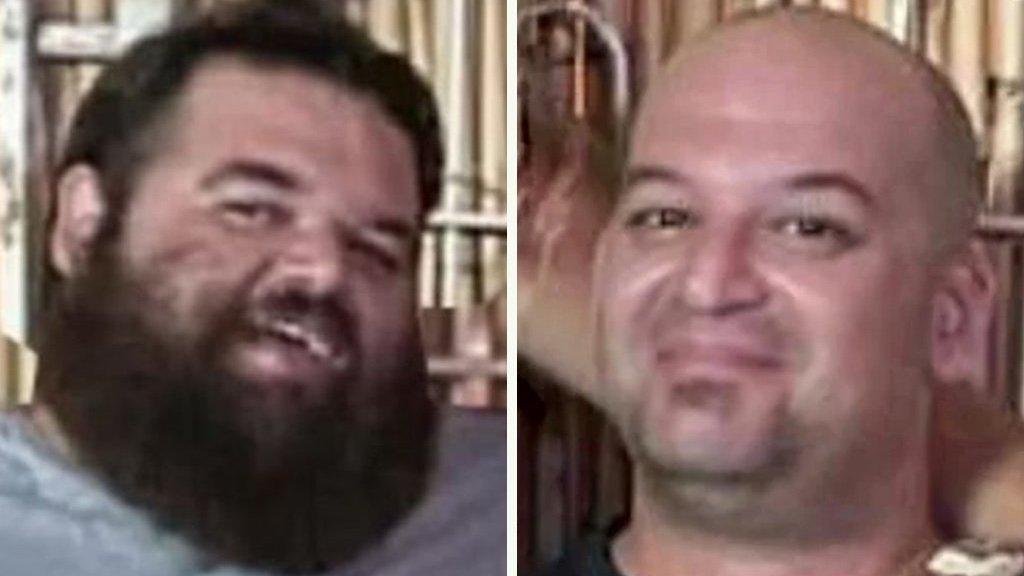Freed Israeli hostage's British family concerned over gaunt appearance
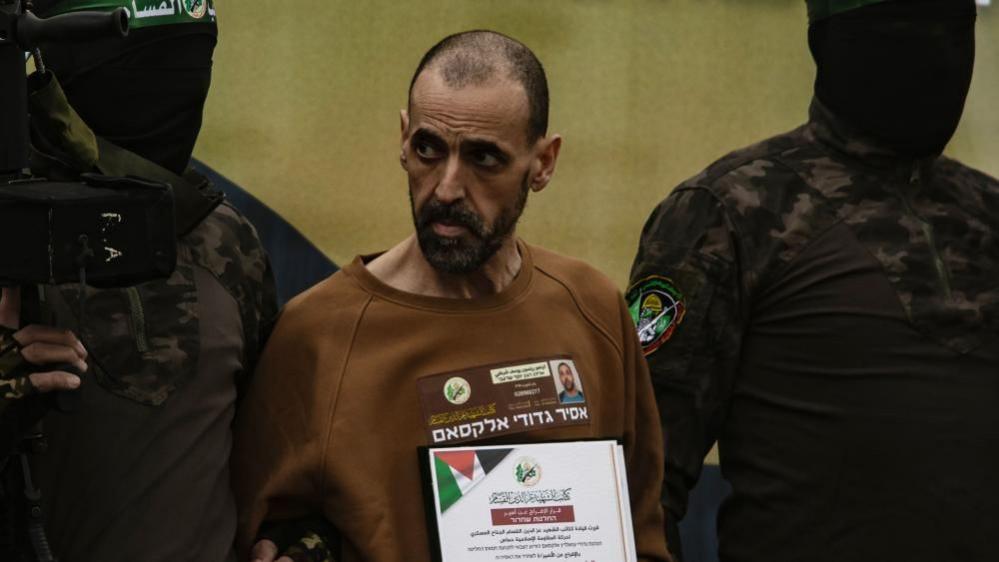
Eli Sharabi was escorted onto a stage by Hamas before being handed over to the Red Cross
- Published
The British family of an Israeli hostage freed from Gaza on Saturday have described a "pendulum of emotions" as he was released 16 months after his capture.
Eli Sharabi's brother-in-law Steve Brisley, who lives in Bridgend, south Wales, expressed joy at his release, but voiced concerns over Mr Sharabi's gaunt appearance and whether he knew his wife and daughters had been killed in the 7 October attack.
Mr Sharabi, 52, was taken by Hamas from Kibbutz Beeri on 7 October, while his British-born wife, Lianne, and two teenage daughters, Noiya and Yahel, were found murdered in their home.
He was one of three hostages handed to the Red Cross by Hamas in a choreographed release in Deir al-Balah, central Gaza.
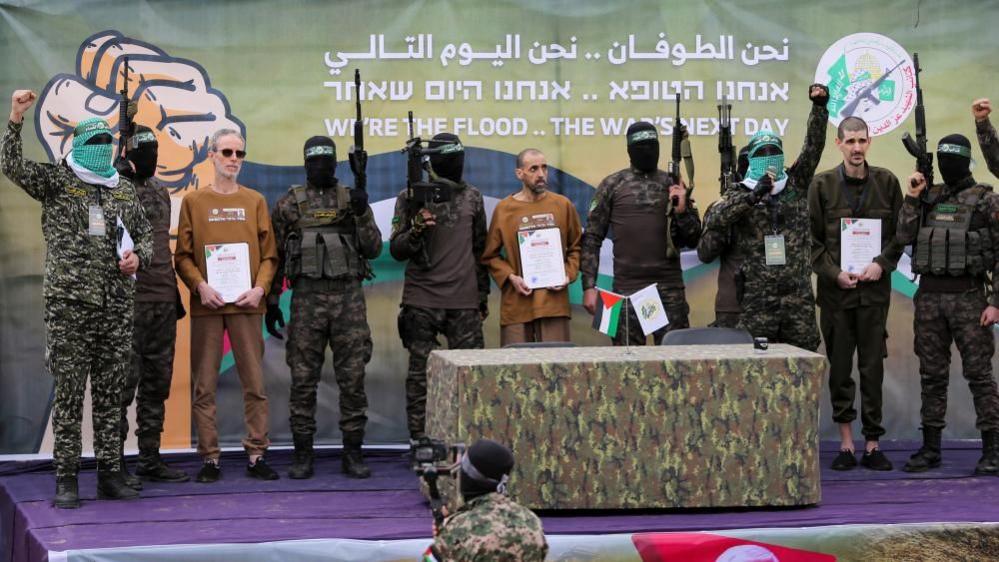
Left to right: Or Levy, Eli Sharabi and Ohad Ben Ami stood on stage before being handed to the Red Cross on Saturday morning
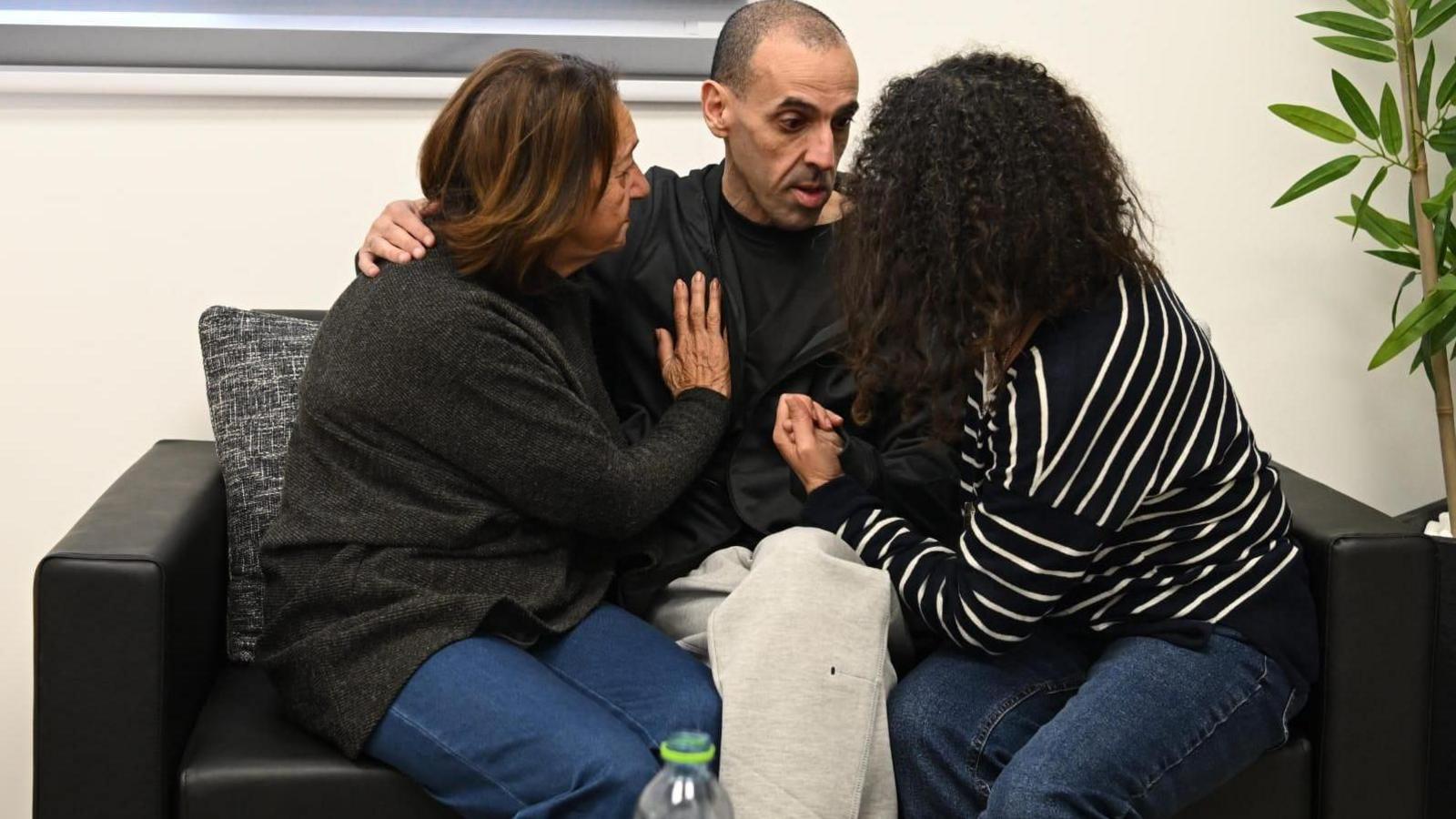
Eli Sharabi reunited with his mother Hanna and sister Osnat after his release
Speaking on stage during his release, Mr Sharabi said he was "very happy today to return to...my wife and daughters", adding to concerns that he was unaware his family had been killed.
Mr Brisley told the BBC he was experiencing "the whole pendulum of emotions - joy and relief through to heartache and everything in between" over Mr Sharabi's release.
"It's the end of one part of the nightmare that we've been on, but beginning of the next chapter... It's been an incredibly emotional 24 hours or so since Eli's name appeared on the list yesterday afternoon," Mr Brisley told BBC Breakfast mere minutes after Mr Sharabi was released to the Red Cross.
"To finally have confirmation that he's alive and that he's coming out is obviously what we've been working towards for last 15,16 months, but to see him paraded in the way he was in that propaganda fashion was incredibly difficult.
"And to see the physical state of him - on one hand he's upright and walking independently at least, but he's gaunt, thin and just the light gone from his eyes.
"All the way through this, we've not known if he was alive or dead," he said.
A family statement released following Mr Sharabi's transfer to the Red Cross said they were "delighted" he is finally free but horrified at his physical condition and the "grotesque spectacle" of his release.
The International Committee of the Red Cross (ICRC), which facilitated the handover, said it was "increasingly concerned about the conditions surrounding release operations".
"We strongly urge all parties, including the mediators, to take responsibility to ensure that future releases are dignified and private," it said.
Mr Sharabi's name being on a list of hostages to be released on Saturday was the first confirmation that the family had of him being alive since 2023, Mr Brisley said.
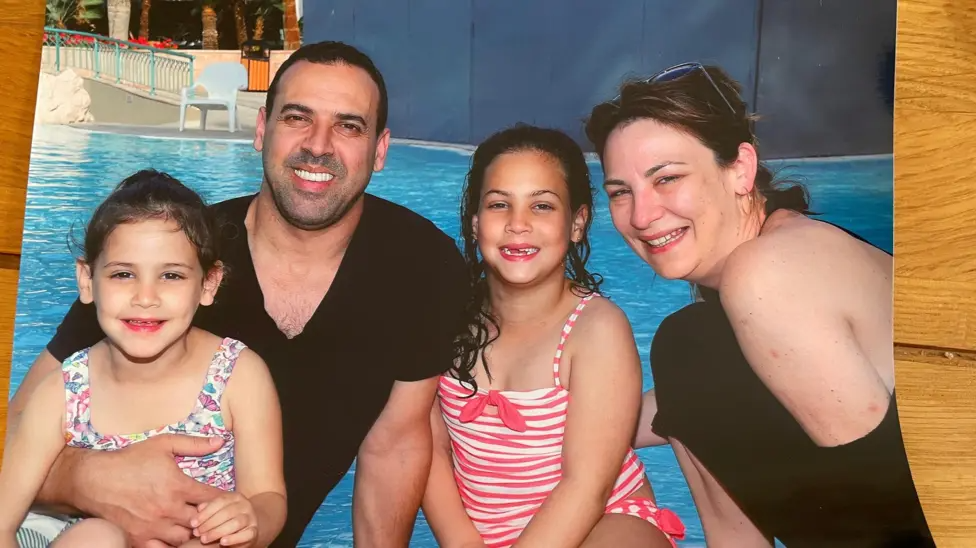
A Sharabi family photo. Left to right: Yahel, Eli, Noiya and Lianne
Mr Sharabi's father-in-law Pete Brisley, who also lives in Bridgend, says there were no witnesses to the attack on the Sharabi home, which means the family does not know whether he is aware of the deaths of his family.
"We still don't know whether he knows that he's lost his family, his wife and daughters because nobody knows whether he saw them murdered or whether he was taken outside before," he told the BBC's Lucy Manning.
"It's just very, very emotional here.
"It's great to see him released, but I wasn't expecting to see him looking like that, so very very thin and emaciated.
"He looks like he's just come out of a concentration camp," he said.
Gillian Brisley, Mr Sharabi's mother-in-law, told the BBC she was "disgusted" by the "grandstanding" around the hostages' release and their "forced interviews".
"Obviously they'd been told what to say," she added.
Lianne Sharabi was Gillian and Pete Brisley's daughter and Steve Brisley's sister, and Noiya and Yahel their granddaughters and nieces respectively.
"We'll find out some time in the next couple of hours, because his mum and his sister are waiting at the hospital to greet him," Pete Brisley said.
"I would think his first question will be, where are they?
"If he did see them murdered, then he's had to live with that for the last 15 months, 16 months."
Lianne grew up in Staple Hill, on the outskirts of Bristol, and first moved to Israel as a volunteer on a kibbutz when she was 19, before relocating to the country permanently.
After just three months in Israel, she met Eli. They had two daughters, Noiya and Yahel, who were 16 and 13 when they were killed.
One of Eli's brothers, Yossi, was also taken hostage on 7 October, but was later killed in captivity. Hamas said his death was the result of an Israeli airstrike, which Israel said was likely.
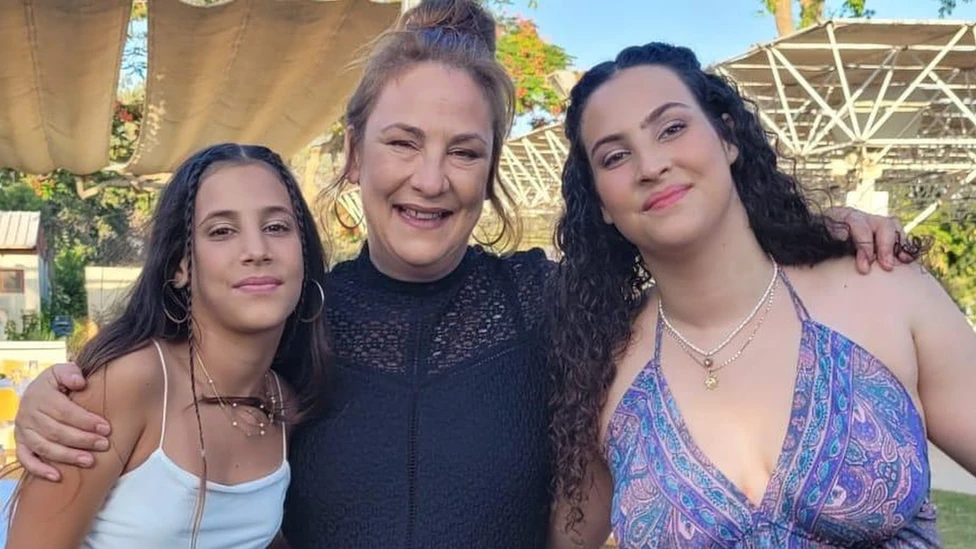
Foreign secretary David Lammy welcomed the release of Mr Sharabi, and also Or Levy and Ohad Ben Ami, saying that "they and their families have suffered an unimaginable ordeal".
He called for the ceasefire deal to be implemented in full, including the release of the remaining hostages.
The release of the three hostages comes under the ceasefire deal between Hamas and Israel, which came into effect on 19 January.
Israel is releasing 183 Palestinian prisoners on Saturday. More than 70 are serving life or long sentences; others are Gazans detained during the war.
The ceasefire deal sees a total of 33 hostages taken on 7 October released in weekly hand-overs in exchange for 1,900 Palestinians in Israeli prisons.
So far, 16 hostages have been freed over five releases and 566 prisoners have been released.
On 7 October Hamas seized 251 hostages and killed about 1,200 people when it attacked Israel, triggering the war.
At least 47,500 Palestinians have been killed in Israel's offensive, according to Gaza's Hamas-run health ministry.
About two-thirds of Gaza's buildings have been damaged or destroyed by Israel's attacks, the UN says.
Related topics
- Published27 February
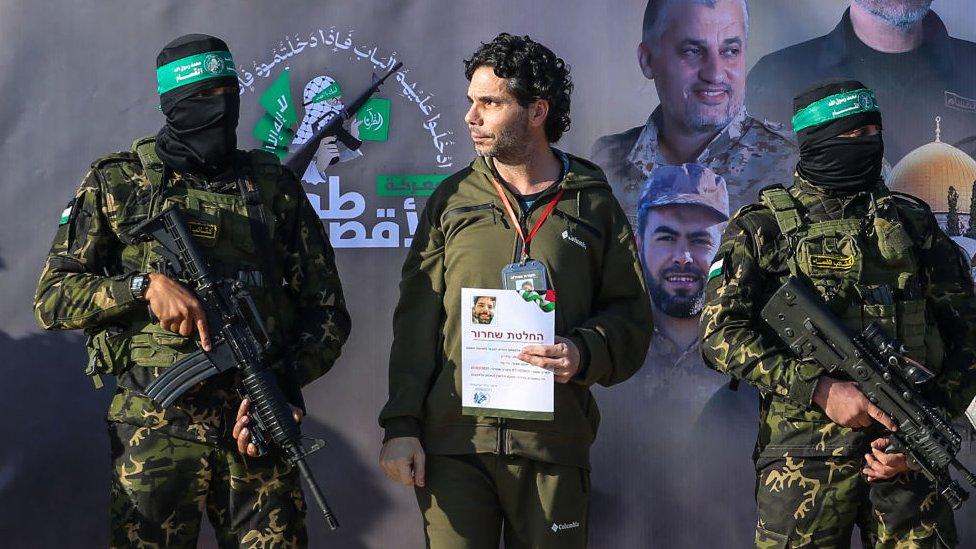
- Published18 March
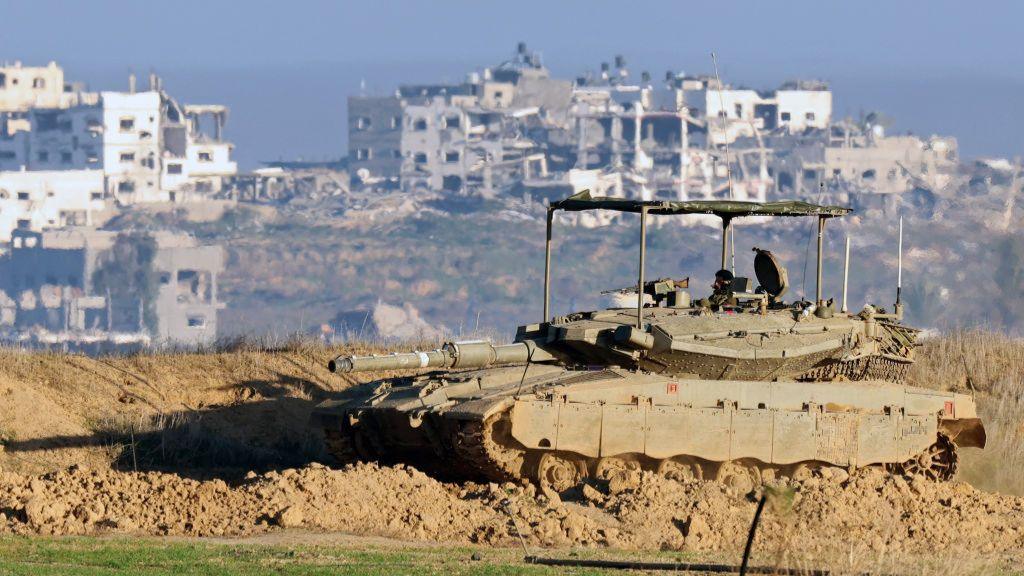
- Published27 February
